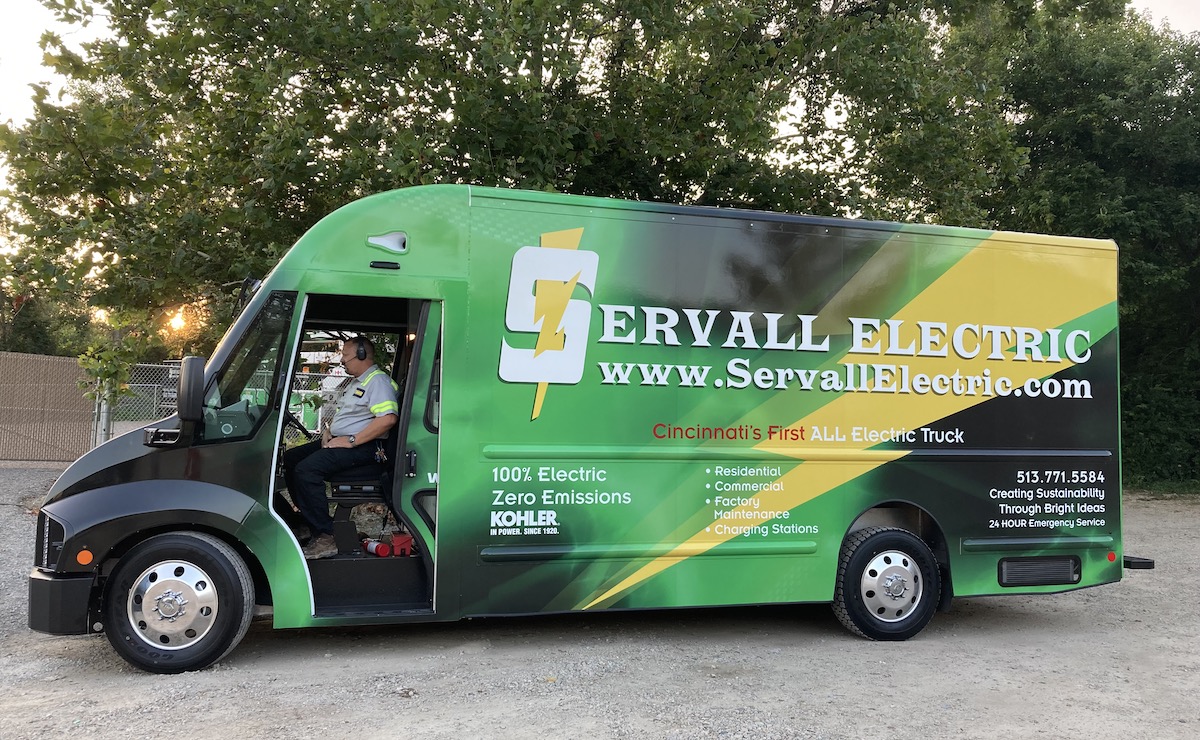Electric Mobility for All
The Shoonya campaign is revolutionizing transportation with a radical and urgent transition to zero-emissions vehicles in India and beyond.
This is an excerpt from RMI's 2022 Annual Report.
Read the full report.
As electric vehicles revolutionize transportation, it’s vital that nobody is left behind. That’s why RMI is working in the United States, Africa, India, and the Caribbean to ensure that EVs are accessible to all.
In India, the transport sector is the fastest growing source of carbon emissions. And tailpipe exhaust from gas- and dieselpowered vehicles are a leading cause of devastating health problems, from asthma, bronchitis, and pneumonia to lung cancer, strokes, and heart disease. Of the 20 most polluted cities in the world, 14 are in India. RMI and India’s governmental think tank, NITI Aayog, are changing that by promoting zeroemissions delivery vehicles through an innovative campaign: Shoonya.
The growth of e-commerce and urbanization in India — along with the rest of the world — has dramatically expanded the fleets of delivery and ridehailing vehicles. To boost consumer awareness of zero-emissions options, Shoonya — inspired by the Sanskrit word for zero — is advancing electrification by a special seal created for electric vehicles, packages, and driver uniforms. By creating a differentiated market for zero-emissions deliveries, Shoonya helps companies elevate their offerings from those of their competitors.
“We have gathered frontrunners and champions in the urban delivery and commercial passenger ecosystem in this campaign,” says Amitabh Kant, ex-CEO of NITI Aayog. “Through Shoonya, our efforts will snowball into a nationwide paradigm shift to greener mobility and will inspire fellow industry players to join us in this transition.”
RMI also developed a popular ad campaign for Shoonya with more than 60 million views across social media. An online tracking platform will soon share the campaign’s impact by surfacing data such as vehicle kilometers electrified, carbon emissions saved, criteria pollutant avoided, and other benefits from clean delivery vehicles.
By August of 2022, Shoonya had over 130 partners including Amazon, Coca-Cola, Uber, and Tata Motors, one of India’s largest makers of cars, truck, and other vehicles. Using electric vehicles for all deliveries and ride-sharing services in India would avoid 17,000 tons of particulate matter and 540,000 of tons of NOx emissions — the main sources of air pollution — and would avoid 54 million tons of carbon emissions, equivalent to planting 900 million trees.
Shoonya is transforming transportation in India, and it has the potential to transform an increasingly mobile world. By empowering consumers and industry, Shoonya opens up a new world of possibilities for all nations.
Case Study: Electrifying Public Transit in Bermuda
This past April, Bermuda moved one big step closer to achieving its climate targets by welcoming the first 30 electric buses into service to replace its aging diesel buses. This represents nearly onethird of its overall public bus fleet and is the first step of its multiyear strategy to fully electrify the entire bus fleet. These 30 electric buses will save $10 million in fuel and maintenance over their lifetime. RMI served as a strategic and technical advisor to the Government of Bermuda, providing detailed analysis, market intelligence, and strategic guidance to make this project possible. Photo courtesy of the Government of Bermuda
Case Study: Proving Electric Trucks Make Sense Today
In September 2021, 13 electric trucks, driving real routes and carrying real freight, covered 7,000 miles across North America as part of RMI and the North American Council for Freight Efficiency's Run on Less — Electric roadshow. We followed the trucks on their regular routes for three weeks, collecting metrics and stories from the road, learning the challenges and opportunities they face. The Run proved that certain trucking segments — from vans to heavy-duty semis — are more than ready to go electric. And when they do, we could save 100 million tons of CO2 — equivalent to eliminating 25 coal-fired power plants.
Meet Samhita Shiledar, RMI Manager
SAMHITA SHILEDAR is one of the minds behind the Shoonya campaign. Shiledar grew up in India and witnessed a rapid revolution in the transportation sector. “From going to school in a tricycle rickshaw and buying vegetables from a pushcart to now using ridesharing cars and ordering groceries online, the way I use transportation has changed a lot over the decades,” she says. Although this transformation has made the world more connected, it has also led to high emissions and costs to the environment, air quality, and public health. “I am driven to make the transportation sector more sustainable,” she adds.
Shiledar explains that RMI’s India program has focused on transportation decarbonization in India for the past seven years. “We have been working extensively with the public and private sectors on policy, business, and technology, but lack of consumer awareness would always come up as a barrier to scaled EV adoption.”

This challenge inspired Shiledar’s team to think about innovative ways to promote EVs among end consumers. Delivery and ride-hailing are the first movers when it comes to electrification and have a big share of total vehicular movement in India. RMI used some of our unrestricted donations to test creating the corporate branding program and consumer awareness “Shoonya.”
Shiledar is excited about the opportunity to expand Shoonya across the globe, and to stimulate demand for more zero-pollution services. “Scaling Shoonya across the US, Europe, the UK, Southeast Asia, and Latin America could lead to 2.2 gigatons of CO2 reductions over the lifetime of vehicles sold by 2030,” she explains. “This is one of the world’s most significant and attainable decarbonization opportunities in the transportation sector.”

“We’re proud to partner with RMI on programs supporting the clean energy transition across countries. RMI accelerates electric mobility by advancing the implementation of transportation decarbonization initiatives and making cities ‘electric vehicle’ ready.”
—Sonia Medina, Executive Director, Climate Program at Children’s Investment Fund Foundation